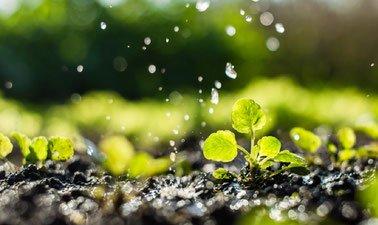MOOC List is learner-supported. When you buy through links on our site, we may earn an affiliate commission.

MOOC List is learner-supported. When you buy through links on our site, we may earn an affiliate commission.
Worldwide, a variety of processes puts increasing pressure on water resources. Global climate change causes temperatures to rise and precipitation and rainfall patterns change. An increasing degree of urbanization causes people to move from the countryside to cities. This process creates increasing competition over water resources, like rivers and groundwater, between cities and their surrounding areas. Furthermore, population growth and rising global welfare create an increased demand for food. With agriculture being the dominant water user worldwide, this process has a significant impact on agricultural water management and challenges us to find sustainable solutions, A solution that takes all perspectives into account.
The increased amount of food production must come from existing agricultural lands, since we are already dealing with a scarcity in the availability of new agricultural land. Furthermore, the potential of increased production in the already existing rain-fed agricultural areas is low, creating an urgency for improved agricultural water management.
Management and governance regarding irrigation, drainage and overall water management should take the different water uses and users into account, combining them with the right quantity and quality of water. This must include various spatial levels, from field to river basin. A further challenge is to consider the effects on both upstream and downstream water users.
This MOOC focuses on the role of agricultural water management, from crop characteristics and irrigation water requirements to models of agrarian development and water management demands. The course consists of several learning modules combined with a case study. Case study videos and interviews from Morocco are used to apply the knowledge from the learning modules. This creates the opportunity for you to immediately apply your gained knowledge in a real-life situation.
We developed this course in close cooperation with IAV (Institute Agronomique et Veterinaire Hassan II) in Rabat, Morocco. Specifically, professor Hammani (director of the institute) and researcher Ms. Kettani supported us greatly during the development of this MOOC. The case is situated in the Tadla irrigation scheme, where we were supported by the ORMVA-T. Special thanks goes to Mohamed Saaf, chef of ORMVA-Tadla, for the support we received in the field.
This course is part of the Water & Drainage in Agriculture Professional Certificate.
What you'll learn
- Explain the allocation, distribution, governance and use of water
- Apply the basic principles of estimating irrigation water requirements
- Explain relations between water management practices and local agricultural conditions.
- Understand the relation between water technologies, management & governance
- Analyze the interrelations between institutional and infrastructural designs for sustainable water management in agriculture.
Syllabus
Module 1: Addressing Global Water Issues
This week introduces the concept of agricultural water management in the global context of water and food.
Module 2: Water Demand for Crop Production
In this week, the basics of calculating crop & irrigation water requirements and the relationship with actual field practices of farmers will be explained. Special attention is given to the relationship between climate, crop water requirements and crop types.
Module 3: Agricultural Water Distribution & Technology
In this week, the basics of the technology in agricultural water management will be explained. Special attention is given to the water management needs of different crops, and local conditions.
Module 4: Agricultural Water Management & Governance
In this week, the management and governance dimensions of various irrigation technologies will be explored at various institutional levels.
Module 5: Agricultural Water Management in Morocco – Putting knowledge into action
In this week, technical and social factors will be integrated and used in a final assignment applied to a real-life case study.
MOOC List is learner-supported. When you buy through links on our site, we may earn an affiliate commission.
MOOC List is learner-supported. When you buy through links on our site, we may earn an affiliate commission.
